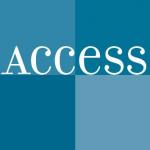For nearly 30 years, Access Community Health Network (ACCESS) has been on the forefront of transforming community health care by providing accessible, affordable health care in the Chicago area's most underserved communities.
With origins that grew out of serving residents of public housing projects on the South and West sides of Chicago, ACCESS has become one of the largest networks of federally-qualified health centers in the nation and serves more than 183,000 patients each year.
In serving some of the most vulnerable populations, ACCESS is constantly exploring new ways to reduce racial and ethnic health disparities. Recognized as a Level 3 Patient-Centered Medical Home (PCMH), ACCESS focuses its services and support programs on three core areas: medical, behavioral and social, going beyond the traditional clinic model to address the holistic needs of individuals, families and communities using evidence-based approaches.
Building an Integrated Health Home (IHH) Model
As ACCESS continues to evolve its care model to better address the holistic needs of its patients, one area of focus is how to best leverage and integrate care coordination services to better manage high-risk segments of patient populations, such as those suffering from serious mental illness, such as schizophrenia, bi-polar disease, major depression, who commonly have co-occurring substance use disorders.
In 2016, the state of Illinois applied to the Centers for Medicare and Medicaid Services (CMS) for an 1115 waiver with accompanying state plan amendments (SPAs) to challenge health care systems and community partners to establish models, including integrated health homes (IHHs), which address patients’ physical, behavioral and social needs in a coordinated way. In anticipation of the approval of the waiver, ACCESS initiated a planning process with other community partners to build an IHH in 2017. Designed with primary care at the core to address the needs of the many patients it serves with severe mental illness, the model encompasses the needs of the whole person. The waiver and state plan amendments were approved in May 2018.
In February 2018, ACCESS launched its IHH pilot to improve the health outcomes for residents of the South and West sides of Chicago with serious and persistent mental illness. The program, which integrates primary care with mental health and substance use disorder treatment, housing, and employment support services, is made possible through grant funding from the RCHN Community Health Foundation.
"For anyone grappling with social determinants of health, such as housing, food and employment insecurity, maintaining their health care is a constant challenge; and for those struggling with severe mental illness or substance-related conditions, it's an even greater challenge," said ACCESS CEO Donna Thompson. "This grant will help us to improve access to behavioral health care for our most vulnerable patients and help us address some of the underlying issues that can exacerbate their conditions, such as housing or employment issues."
Redefining Research in a Community-Based Setting
As a national leader in community health, ACCESS is committed to engaging our patients and our communities in finding real solutions to impact the health of our medically underserved communities. In 2016, the ACCESS Center for Discovery and Learning opened its doors, becoming the first FQHC-based translational research center funded by the National Institutes of Health (NIH). Located on the same campus as one of ACCESS' health centers, it is designed to support research and learning in a community-based setting. Designed using environmentally conscious principles, the ACCESS Center for Discovery and Learning now serves as an innovation incubator that fosters new thinking, tests ideas, and refines ways to deliver care and reduce racial and ethnic health disparities.
Learn More About Our Work
Visit www.achn.net/FY17AR to find out how ACCESS is working to transform the health of our communities.





